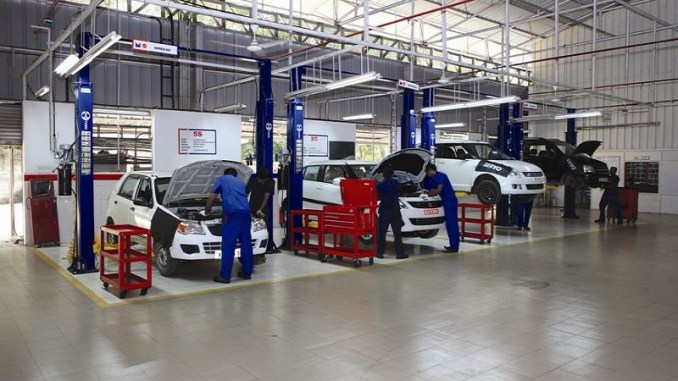All Categories
Featured
Normal engine tune-ups are crucial for preserving your automobile's efficiency, improving gas performance, and extending its life-span. Whether you're a skilled vehicle owner or a newbie, recognizing the essential elements of an engine tune-up can help you keep your auto running smoothly for years. Here are some essential suggestions to guide you through the process.
- Change the Glow Plugs. Ignition system are tiny yet magnificent elements that play an essential function in stiring up the fuel-air mix in your engine. With time, they can put on out or end up being fouled, resulting in inadequate engine efficiency, minimized fuel effectiveness, and difficult begins.
Throughout a tune-up, examine your trigger plugs for wear and change them as required. For a lot of vehicles, trigger plugs must be changed every 30,000 to 100,000 miles, depending on the type and product. Fresh ignition system ensure reliable burning and smoother engine operation.
- Examine and Replace the Air Filter. The air filter is your engine's initial line of defense versus dust, debris, and other contaminants. A clogged up or filthy air filter can limit airflow, triggering your engine to work tougher and consume even more fuel.
Examine your air filter throughout a tune-up and change it if it's dirty or previous its suggested solution interval. A tidy air filter boosts engine performance and boosts gas economic climate.
- Examine the Gas System. With time, your fuel system can gather dirt and carbon down payments, minimizing engine performance and fuel effectiveness. Cleansing the fuel injectors and gas lines throughout a tune-up helps keep proper fuel delivery and burning.
You can make use of a fuel system cleaner or have a specialist mechanic do a more detailed cleansing. This step is specifically valuable for older vehicles or automobiles often driven in stop-and-go website traffic.
- Inspect the Belts and Tubes. Belts and pipes are vital for different engine features, such as running the alternator, water pump, and a/c. During a tune-up, check for cracks, fraying, or signs of endure these parts.
Replace any worn-out belts and pipes to avoid potential break downs. A broken belt or dripping pipe can lead to engine overheating or loss of power, so dealing with these issues immediately is crucial.
- Change the Engine Oil and Oil Filter. Engine oil is essential for lubing moving parts, decreasing friction, and managing engine temperature level. With time, oil comes to be polluted and sheds its efficiency.
As component of a tune-up, change the engine oil and oil filter. Utilize the type of oil recommended by your car's supplier and stick to the recommended change periods. Tidy oil keeps your engine running efficiently and avoids early wear.
- Test the Battery and Charging System. A healthy and balanced battery is vital for beginning your car and powering its electric systems. During a tune-up, examine the battery's voltage and inspect the terminals for corrosion. Tidy the terminals if needed and ensure a safe connection.
Furthermore, examination the generator and charging system to guarantee your battery remains charged throughout operation. If your battery is weak or old, think about changing it to stay clear of unanticipated break downs.
- Flush and Refill the Coolant. The air conditioning system regulates your engine's temperature, avoiding it from overheating. Old or contaminated coolant can shed its performance, causing prospective engine damages.
Throughout a tune-up, flush the old coolant and replace it with a fresh blend. Check the radiator, thermostat, and pipes for leakages or damages. Maintaining the air conditioning system in excellent condition ensures your engine runs at the right temperature.

- Address Caution Lights and Unusual Signs And Symptoms. Modern cars are furnished with analysis systems that signal you to potential issues via control panel warning lights. If your check engine light or any various other cautioning indicators are on, resolve them throughout your tune-up.
Additionally, take note of uncommon symptoms such as weird noises, harsh idling, or decreased fuel performance. A specialist mechanic can diagnose and fix these problems during the tune-up process.
- Do Not Forget the Exhaust System. Your auto's exhaust system gets rid of hazardous gases from the engine and makes sure correct exhausts. Inspect the exhaust system for leaks, corrosion, or damages during a tune-up. A damaged exhaust system can affect engine efficiency and lead to ecological and security concerns.
- Use High-Quality Components and Fluids. When changing parts or complementing fluids during a tune-up, constantly select top quality products that satisfy your vehicle's specs. Making use of below average parts or incorrect liquids can adversely influence your engine's performance and long life.
Final Thought: Routine Tune-Ups Are Trick to Engine Health And Wellness. Making the effort to tune up your engine ensures it runs effectively, conserves gas, and lowers the risk of breakdowns. Whether you carry out these jobs yourself or depend on a relied on technician, routine tune-ups are a financial investment in your car's dependability and long life. Comply with these ideas, and you'll take pleasure in a smoother, more dependable ride for years to find.
Latest Posts
Full Circle Strategic Marketing - Optimize Business Strategies with Tailored Strategies
Full Circle Strategic Marketing - Boost Your Company with High-Impact Marketing Support
Allow United States Assist You Develop Extraordinary Moments at Enjoyable City Hotel
More
Latest Posts
Full Circle Strategic Marketing - Optimize Business Strategies with Tailored Strategies
Full Circle Strategic Marketing - Boost Your Company with High-Impact Marketing Support
Allow United States Assist You Develop Extraordinary Moments at Enjoyable City Hotel
